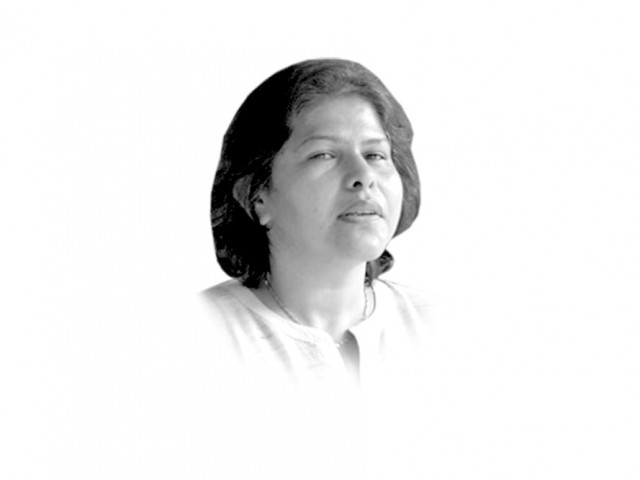Narrative of silence and deception
Silence pushes an issue under the carpet, at least, up until the popular narrative can be changed through deception.

The writer is an independent social scientist and author of Military Inc.
Silence is a great tool as it pushes an issue under the carpet, at least, up until the popular narrative can be changed through deception. Lalla Qadir Baloch is a man of the soil who cannot afford a bulletproof vehicle or a bunker. This is a man who has decided to walk approximately 700km with blistered feet that hurt and impair his pace. But no need to mention these details because he will probably be portrayed a few years later at an opportune time in glowing colours as some enemy agent.
There is nothing new in this approach as this was adopted before in case of the former East Pakistan. For over three decades, we in Pakistan were confronted with silence on the issue except some sketchy details on the dismemberment being an Indian conspiracy. While sheaves of paper were used for describing the events of 1947, very little was written on the tragedy of 1971. Even if we were to imagine that the event was nothing more than an enemy’s doing, there were no details about what happened then. We have begun to elaborate 1971 in the past decade or so when we have either constructed or found narratives which can detract people from the reality. There was much excitement about Sarmila Bose’s work when it started to surface around 2005. The final publication of the book and its circulation is welcomed. For those who think that powerful elements of the state have nothing to do with the book’s circulation must remember books that are artificially suppressed. There is even a latest technique through which you can suppress publications that are otherwise available in the market by curbing their discussion so that these do not get attention in this society where book reading is not a popular activity.
After the Bose book, others are being assisted to produce other stories such as those on violence during 1971 against other ethnicities. A couple of years ago, an Indian Bihari was a welcome guest in Islamabad documenting atrocities of the Mukti Bahini against the Bihari population. It is important to note that these stories are not a lie either. The 1971 crisis was a civil war in which various communities and thousands of people were killed and tortured. The Mukti Bahini was trained by India’s then newly established RAW as is even admitted by the organisation’s one-time head B Raman in his biography. Such partnership was almost certain in a situation where the state was callously unwilling to give a sympathetic ear to its own people. In fact, it is tragic that the same state is unwilling even after almost four decades to own those people fought against it as its own. The explanation given in defence of Jamaat-e-Islami’s Abdul Quader Molla is that he fought an enemy to protect the state. The popular narrative in today’s Pakistan does not highlight the fact that the state was then engaged in a battle against its own people, making way for an opportunity that others would exploit.
I remember my long visit to Bangladesh in 2006 for research. I had landed in Dhaka shuddering at the thought of the reaction I would get on introducing myself as a Pakistani. I remember being pleasantly surprised as there wasn’t that imagined hostility which was confined mostly to Awami League supporters or those with memories of 1971.
The emphasis of the new narrative on 1971 and present-day Balochistan tends to wrap its audience’s attention in the game of numbers. So, if you can prove that there was discrepancy in the number of people killed and women raped, the state can argue that the entire crisis was a pack of lies. Theoretically, victims of state oppression tend to exaggerate numbers to draw attention towards their misery. There is also a tendency to react against those seen as partnering with the state because these are easier to fight. There is no moral justification for such violence but then those who justify everything that the state does from the lens of realpolitik must understand such extreme reactions too. More important, there is a need to understand that such a spate of violence happens when the state abandons its people.
The story of the lost souls of 1971 and Lalla Qadir Baloch can be retold in another way but its reality remains the same: it’s the heartlessness of the state that creates enemies out of its own people.
Published in The Express Tribune, January 16th, 2014.
Like Opinion & Editorial on Facebook, follow @ETOpEd on Twitter to receive all updates on all our daily pieces.












1724319076-0/Untitled-design-(5)1724319076-0-208x130.webp)


COMMENTS
Comments are moderated and generally will be posted if they are on-topic and not abusive.
For more information, please see our Comments FAQ